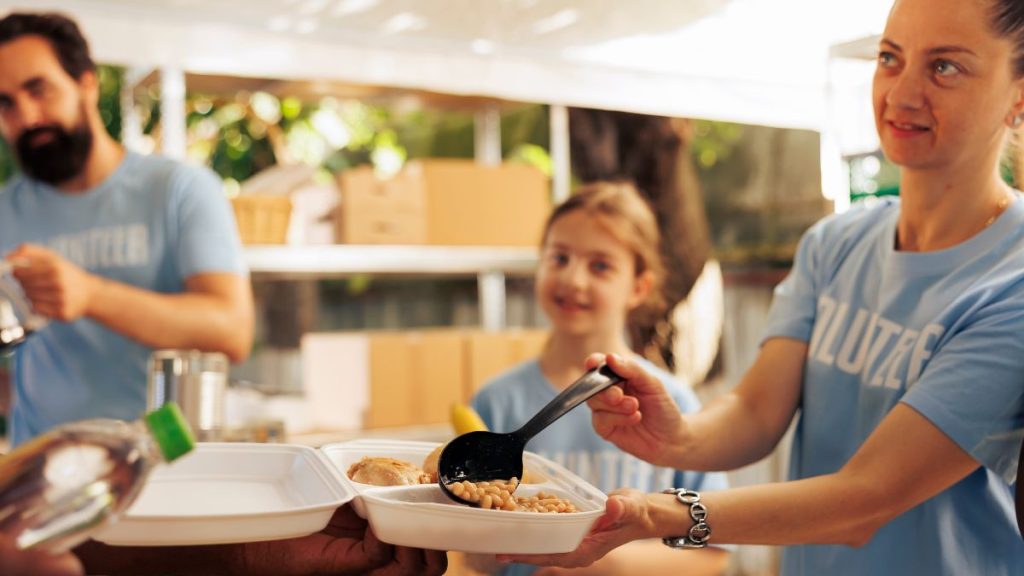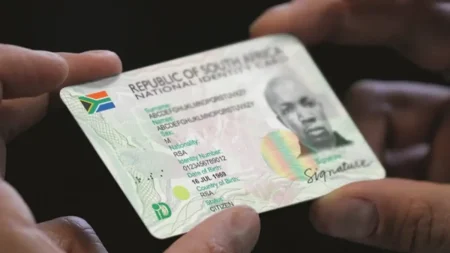South Africa faces growing food insecurity, with millions of households relying on food banks, soup kitchens, and community relief programmes. Unfortunately, the rise in demand has also led to a surge in charity scams exploiting the goodwill of citizens and businesses.
Knowing how to distinguish legitimate food banks from fraudulent ones is crucial. This guide explains how to verify registered organisations, where to find credible food relief networks, and how to donate or seek help safely.
Why Verifying a Food Bank’s Legitimacy Matters
Verifying a food bank’s registration is more than a technicality. It is about accountability and trust. Legitimate non-profit organisations (NPOs) in South Africa are registered with the Department of Social Development (DSD). This registration requires them to submit annual financial statements and operational reports, ensuring transparency.
According to DSD data, over 250,000 NPOs are currently registered in South Africa, covering areas such as food relief, education, and healthcare. However, many unregistered groups operate informally, and while some are genuine community efforts, others misuse funds or run fraudulent donation campaigns.
Being registered as an NPO means an organisation is listed on the public DSD register, accessible at NPO Register. This tool allows anyone to verify a charity’s status, view its registration number, and check its compliance history.
How to Verify a Food Bank in South Africa
Before donating or volunteering, it is vital to confirm that the organisation is legitimate. Follow these steps:
- Check DSD Registration
Visit NPO Register and search by organisation name or registration number. Verify that the charity’s status is active and up to date. - Look for Transparency
Authentic organisations publish their annual reports, impact statistics, and board members on their websites. Check whether they explain how donations are used and where food is distributed. - Confirm Partnerships and Networks
Reputable food banks often belong to The Global FoodBanking Network (GFN) or work with the South African National Food Security Network. Cross-check their affiliation through official partner directories. - Contact the Organisation Directly
Use phone numbers or email addresses listed on their verified website. Be cautious of social media accounts that lack contact details or share unverifiable donation links.
Trusted Food Banks and Relief Organisations
South Africa has several well-established food relief organisations with proven records of transparency, partnerships, and social impact. Below are some of the most reliable examples.
1. FoodForward SA
- Website: https://foodforwardsa.org/
- Headquartered in Cape Town, FoodForward SA redistributes surplus food from manufacturers, retailers, and farms to verified NGOs across the country. Their Virtual FoodBanking model connects food donors directly with community organisations, reducing waste and hunger at the same time. In 2024 alone, they distributed over 20,000 tonnes of food, feeding millions of people across South Africa.
2. Johannesburg Food Bank (Believers Care Society)
- Website: https://www.believerscaresociety.org/food-bank/
- As Gauteng’s largest food bank, this initiative partners with the provincial Department of Social Development to supply food parcels to families in need. The organisation also provides skills training and social reintegration programmes, reinforcing long-term community upliftment.
3. Food for Life South Africa
- Website: https://fflsa.org/
- Operating in multiple provinces, Food for Life SA serves freshly cooked vegetarian meals to vulnerable communities every day. Inspired by compassion and sustainability, it is one of the country’s most extensive feeding networks.
4. Ladles of Love
- Website: https://ladlesoflove.org.za/
- Based in Cape Town, Ladles of Love focuses on dignity-driven food relief. The organisation has distributed millions of meals through its network of community partners, schools, and shelters. It also promotes volunteer engagement through large-scale food drives.
5. Nosh Food Rescue NPC
- Website: https://noshfoodrescue.co.za/
- Nosh Food Rescue reduces food waste by collecting surplus prepared and perishable food from restaurants, hotels, and event venues. It then redistributes this food safely to those in need, tackling both hunger and sustainability challenges.
6. Operation Hunger
- Website: https://operationhunger.org.za/
- Operating since 1980, Operation Hunger provides emergency relief and long-term nutrition projects. Their programmes focus on vulnerable rural and peri-urban communities, empowering families to achieve food security through education and agricultural training.
Other trusted organisations include Gift of the Givers, renowned for humanitarian aid and food relief during disasters, and Hearts that Hope, a KwaZulu-Natal-based charity supporting children through feeding and education programmes.
For a broader list of verified NPOs, check local government directories or the DSD’s online registry.
How to Donate or Volunteer Safely
Supporting a food bank can change lives, but only if done through secure and transparent methods. Here’s how to ensure your help reaches the right hands.
- Donate through official channels such as the organisation’s verified website or official bank account details.
- Avoid intermediaries who claim to represent charities without proof.
- Request a donation receipt from the charity for transparency.
- Visit the food bank in person when possible to confirm their operations.
- Volunteer through official registration forms available on their websites.
Spotting and Avoiding Charity Scams
Charity scams have become more sophisticated, often impersonating well-known organisations to steal money or personal information. Here are common warning signs to watch for.
1. Pressure Tactics
Scammers use emotional language such as “act now” or “people will die without your help.” Genuine charities never rush donors or demand instant transfers.
2. Suspicious Communication
Be wary of unsolicited messages via WhatsApp, email, or social media that ask for donations. Fraudsters may copy real charity names with slight spelling changes, for example, “foodforwardsa.com” instead of the legitimate “foodforwardsa.org.”
3. Missing Information
Legitimate NPOs provide clear details about their mission, leadership, and impact. If these are missing, take it as a red flag.
4. Untraceable Payment Requests
Avoid any charity asking for donations via gift cards, wire transfers, or cryptocurrency. Secure methods include EFTs or credit card payments through trusted portals.
5. Phishing for Personal Data
No charity should ask for your ID number, PIN, or banking login. Always check that the website address starts with “https://” before entering any personal information.
If you suspect fraud, report it immediately to:
- South African Police Service (SAPS): https://www.saps.gov.za/
- National Consumer Commission (NCC): https://www.thencc.gov.za/
- Department of Social Development (DSD): https://www.dsd.gov.za/
Community Assistance and Local Networks
If you or someone you know needs food support, start locally. Many municipal offices, churches, and community centres partner with food relief organisations. These partnerships ensure that food parcels and cooked meals reach those most affected by unemployment or crisis.
For example:
- City of Johannesburg Social Development Department offers referrals to registered food partners.
- Faith-based groups such as Anglican Care or Methodist outreach programmes distribute food weekly.
- Community soup kitchens often align with national NPOs such as FoodForward SA or Operation Hunger.
You can also contact provincial DSD offices to locate active food relief programmes near you.
Related: Where to Get Emergency Food Assistance in South Africa
Key Takeaways: Staying Safe While Giving or Receiving Help
- Always verify registration on the DSD NPO Register.
- Research independently and do not rely solely on social media posts.
- Avoid pressure tactics and suspicious links.
- Donate only through official websites or verified bank accounts.
- Report fraudulent charities to authorities.
Check also: Need Help? Here’s Where to Find Food Parcels in the Free State
Food relief is a lifeline for millions across South Africa, but your kindness deserves protection. By supporting registered, transparent food banks and staying alert to scams, you ensure your contribution makes a genuine impact.
Whether you are donating, volunteering, or seeking help, knowledge is your best defence. Visit NPO Register to verify organisations and be part of South Africa’s fight against hunger in a safe and responsible way.
Have you verified the last charity you supported? Share your experience or recommended food banks in the comments to help others give with confidence.










